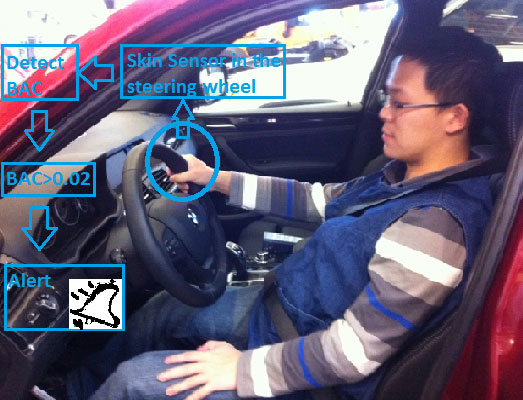In In re Detention of H.N., Division I of the WA Court of Appeals decided that E-mailed screenshots of text messages that a medical expert used as part of her testimony were properly admitted as substantive evidence at trial.
H.N. is a college student who was less than 21 years of age at the time of the events leading to this case. She worked at part time jobs, and she had two roommates who worked with her at one of her jobs. After midnight on a night in May 2014, H.N.’s two roommates returned home to discover her unconscious on the floor and lying in a pool of her own vomit. Nearby there was an empty bottle of wine, an empty bottle of Nyquil, and a partially empty bottle of vodka. H.N. briefly awoke but then passed out again. One roommate called 911, and medics responded to the scene.
Afterward, H.N. was involuntarily detained for mental health treatment.
Thereafter, the State petitioned for up to 14 days of additional inpatient treatment, pursuant to the involuntary treatment act, RCW 71.05. For those who don’t know, detainees like H.N. may petition their local superior courts to be released from detention and observation. However, courts won’t release detainees if the detainee is likely to gravely injure themselves or someone else upon release.
On May 7, 2014, the court conducted a hearing on H.N.’s petition for release. At the hearing, the State presented the testimony of a psychologist who evaluated H.N. at the hospital. The psychologist testified as an expert. Part of her testimony was based on what purported to be e-mailed screenshots of text messages between H.N. and her boyfriend, “A.” These messages were exchanged on the night her roommates found her unconscious on the floor, lying in a pool of her vomit. The psychologist read several of these text messages into the record. Over H.N.’s objection on the basis of lack of foundation, the court admitted this evidence.
For those who don’t know, the “lack of foundation” objection most often applies to exhibits or pieces of evidence other than testimony that are brought into court without an explanation of where they came from or what they represent. Foundation is usually laid by having a witness testify as to what the object is.
At any rate, and after the hearing, the trial court found that H.N. suffered from a mental disorder and presented a likelihood of serious harm to herself. The court entered an order committing H.N. for involuntary treatment for a period of 14 days. H.N. appealed the court’s decision to detain her.
The WA Court of Appeals took the case and decided the issue of whether the trial court abused its discretion when it admitted as substantive evidence e-mailed screenshots of text messages that the State’s expert witness used during her testimony.
The Court decided that the text message evidence was properly authenticated pursuant to ER 901(b). For those who don’t know ER 901(b) is an evidence rule which allows or disallows evidence depending on whether the evidence is properly “authenticated” (or not).
Here, the Court of Appeals gave many reasons why H.N.’s text messages were, in fact, authentic. She gave out-of-court acknowledgments that she sent the messages, the identifying information at the top of the text messages showed that she was the sender of the messages, her phone number matched the contact information in her medical chart, the messages consistently reference names of people in her life, the messages were consistent with certain events in H.N.’s life, and the timing of the text messages were consistent with her hospitalization on the night of the incident.
Consequently, the Court of Appeals affirmed the trial court’s detention of H.N. and concluded that text message evidence was sufficient to support the trial court’s finding that H.N. posed a likelihood of serious harm to herself.
My opinion? The Court’s logic appears sound. Although the text messages are inadmissible Hearsay under Evidence Rule (ER) 801, hearsay is, in fact, admissible under certain circumstances. Also, courts may consider evidence that might otherwise be objectionable under other rules of evidence. They can rely upon such information as lay opinions, hearsay, or the proffered evidence itself in making its determination. Such information must be reliable. Here, ER 901 allowed the State to authenticate the text message evidence. It was reliable. Therefore, it was admissible.
Please contact my office if you, a friend or family member are charged with a crime. Hiring an effective and competent defense attorney is the first and best step toward justice.















